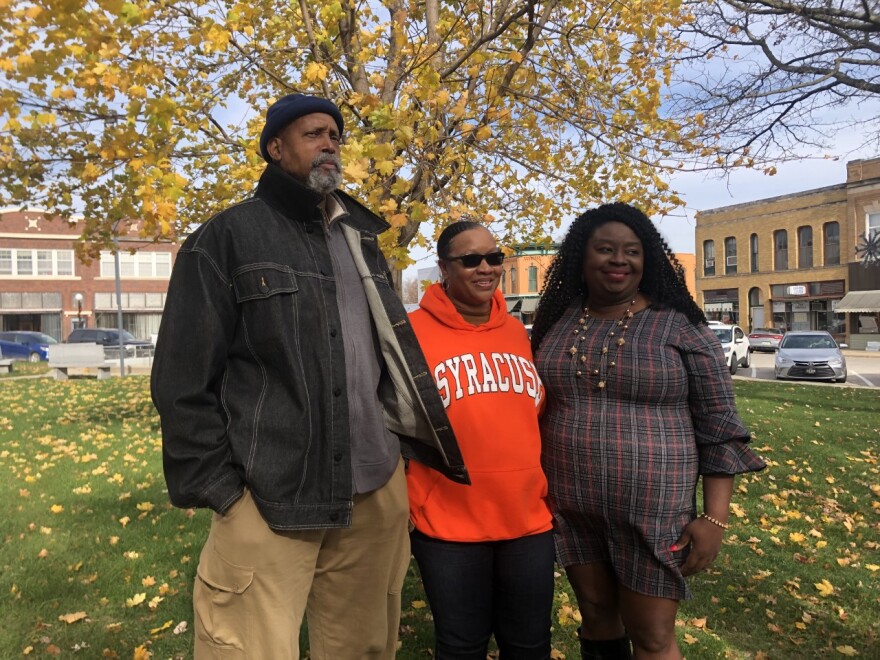Para leer en español, haz clic aquí.
The family of Michael Williams is calling for reform of Iowa’s hate crime laws.
In 2020, Williams, a Black man, was murdered by Steve Vogel, a white man. His remains were set on fire in Jasper County during daylight. Vogel was sentenced to life in prison in late 2021. But, Williams’ loved ones are still fighting for his death to be recognized as a lynching.
Prosecutors and local leaders – including Betty Andrews, president of the state NAACP chapter – maintained that there was no evidence the crime was related to race. But Paula Terrell, Williams’ aunt, said the details of Williams’ death directly mirrors the lynchings of the past.
At a webinar hosted by the University of Iowa Human Rights Center, Terrell said she doesn’t feel like enough has been done to recognize his death in the almost two years since his murder.

“I felt so bad. Even after securing a guilty verdict and he was sentenced to life, it was not sufficient,” Terrell said. “That hate crime charge should be there. And the city of Grinnell should be known as a place where a Black man was lynched in 2020.”
In Iowa, the hate crime classification only enhances punishments for certain offenses – which does not include murder. University of Iowa adjunct law professor Aaron Page said the state of Iowa does not legally recognize lynching as a hate crime.
He said William’s death shows that it’s time for Iowa to reform and strengthen its laws around racially motivated offenses.
“It happened, and while it may be more comfortable for some members of the community to pretend this never happened…it cannot make it go away,” Page said. “People need to speak out especially towards Grinnell and the state of Iowa to say we need to acknowledge this.”
On the federal level, lynching was not officially recognized as a hate crime until earlier this year with the passing of the Emmett Till Anti-Lynching Act. Terrell said she wants to see the state of Iowa follow suit with a piece of legislation expressly punishing the offense, named after Michael Williams.
Terrell said the Williams family also wants to secure federal hate crime charges against those convicted of killing and hiding the death of her nephew.
“I've even considered showing the pictures of Michael's remains,” she said. “They are very reminiscent of the images of Emmett Till.”
"If you don't call it what it is, how can you address the mistreatment of Black men, Black people in the state, if you're not even going to acknowledge that it happened?"Paula Terrell, aunt of Michael Williams
Most hate crimes, defined as an offense occurring because of a person’s perceived social group or racial demographic, are prosecuted by state or local governments. Nationally, there were 8,263 incidents of bias-motivated crimes reported to the FBI in 2020. Iowa reported 15 cases of hate crimes that year – the majority of which were racially motivated.
Homicide advocate specialist Monique Washington said there’s more to be done on the community level as well. Washington said she wants to see acknowledgment from Grinnell Mayor Dan Agnew and Gov. Kim Reynolds that Williams’ death was racially biased.
“When I got this case it was terrifying to me,” Washington said. “And, I’ve learned a lot about justice, and that justice is not always just.”
Further, she said the community needs to continue to honor Williams’ life. She said the family and herself would like to see a memorial for Williams in Grinnell. Terrell said public recognition is imperative in preventing something like this from happening again.
“If you don't call it what it is, how can you address the mistreatment of Black men, Black people in the state, if you're not even going to acknowledge that it happened?” Terrell said.





